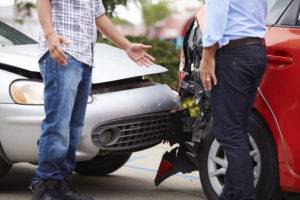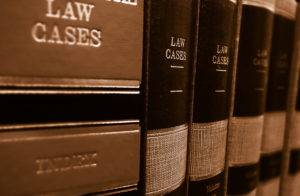Brake checking is illegal in Florida. Doing a brake check is considered aggressive driving.
Many drivers who perform this illegal maneuver are guilty of road rage. However, brake checking is also done by drivers trying to pull road pranks or intimidate others. Anyone found doing this by police can face jail time and other penalties.
What’s Considered Brake Checking in Florida
Brake checking occurs when a driver suddenly hits their brakes. This causes the vehicle behind them to also quickly brake or swerve to avoid an accident. It’s a dangerous, illegal tactic.
Need free legal help in Florida?
We specialize in personal injury claims.

Potential Legal Consequences for Brake Checking in Florida
In Florida, brake checking carries potential legal consequences. They include civil liabilities, criminal charges and impact on insurance premiums.
Civil Liabilities
Drivers can face civil liabilities for brake checking. This can include fines, points against their license or even a license suspension.
Criminal Charges
Brake checking in Florida sometimes results in criminal charges. This can be due to road rage or fraud and may include fines of up to $1,000 and 90 days in jail.
Impact on Insurance Premiums
Brake checking can have an impact on your insurance premiums. Your insurer may dramatically increase your rates or even drop your coverage.
Legal Status of Brake Checking in Florida
It’s important to understand the legal status of brake checking in Florida. It differs from tailgating and has a relationship to relevant state traffic laws.
Difference from Tailgating
Brake checking occurs when a driver abruptly hits their brakes while another vehicle is behind them. According to Florida Statute 316.0895, tailgating happens when a driver follows too closely behind another.
Relevant Florida Traffic Laws
There are other traffic laws relevant to brake checking. According to Florida Statute 316.1923, aggressive driving involves careless maneuvering that puts others at risk.
Reckless driving is also similar to brake checking. According to Florida Statute 316.192, it occurs when a driver acts wilfully, without disregard for the safety of others.
Liability in Brake Checking Incidents in Florida
Brake checking incidents in Florida carry liability. It’s established by considering comparative negligence laws and establishing fault.
Comparative Negligence Law in Florida
According to Florida Statute 768.81, comparative negligence laws allow a victim injured in an accident to recover compensation even if they are partially responsible. They must be considered less than 50% at fault.
Establishing Fault
Certain factors are considered when establishing fault in a car accident. This involves determining whether one or more parties acted with negligence. For example, one driver fails to use a signal when switching lanes and the other runs a red light. In that situation, one person might be found more at fault for an accident.
Need free legal help in Florida?
We specialize in personal injury claims.

Proving Negligence in Personal Injury Claims in Florida
There are ways to prove negligence in Florida personal injury claims. They include gathering evidence, witness testimonies, medical records and reports and dash cam footage and traffic camera evidence.
Gathering Evidence
Gather as much evidence as possible for your injury claim. Write the events as you remember them immediately after the accident.
Witness Testimonies
Speak with anyone at the accident scene who might have seen the incident unfold. Get their names, contact information and statements. Witness testimonies can increase your chances of a good outcome.
Medical Records and Reports
Medical records and reports are some of the strongest evidence available. They prove you sustained injuries and that the at-fault driver is liable.
Dash Cam Footage and Traffic Camera Evidence
Dash cam footage and video from traffic cameras also strengthen your claim. They show the events as they occurred and who is responsible.
Role of Insurance Companies in Brake Checking Accidents in Florida
Insurance companies have a role in Florida brake checking accidents. There is a claims process and negotiations for settlements.
Claims Process
Seek medical attention within 14 days of the accident. Afterward, file a claim through your insurer and include all necessary documentation to show proof of your damages.
Negotiations and Settlements
Personal injury protection (PIP) coverage pays 80% for medical expenses and 60% for lost wages. Property damage liability (PDL) covers damages to your vehicle. Despite this coverage, negotiating for a settlement may be necessary.
Prevalence of Brake Checking in Florida
Brake checking is common in Florida. The state ranks 17th for aggressive drivers.
Common Types of Accidents Resulting from Brake Checking in Florida
Brake checking causes certain types of collisions in Florida. They include rear-end accidents and multi-vehicle collisions.
Rear-End Accidents
Rear-end accidents are typical from brake checking. The driver behind usually lacks ample time to stop safely.
Multi-Vehicle Collisions
Brake checking can cause multiple vehicles to collide. The driver two cars behind might be traveling slightly over the speed limit or following too closely to stop in time.
Steps to Take After a Brake Checking Accident in Florida
There are steps to take after a brake checking accident in Florida. They include ensuring safety, reporting the accident and gathering documentation for legal claims.
Ensuring Safety
If possible, move your vehicle to the shoulder out of traffic. Check yourself and any passengers for injuries.
Reporting the Accident
Immediately report the accident to your insurance company. Call 911 to get police to the scene so they can make a report.
Documentation for Legal Claims
Gather documentation for your legal claim. This should include your medical records and expenses, proof of wages, estimates for auto repairs, photos, videos and the police accident report.
Importance of Consulting with Attorneys in Florida
Consulting with attorneys is crucial. They know the laws, can build a solid case and negotiate a fair settlement.
Frequently Asked Questions
Is it Illegal to Brake Check a Tailgater in Florida?
Brake checking is illegal in Florida.
In What States Is Brake Checking Illegal?
Brake checking is illegal in all 50 states.
What Is the Brake Law in Florida?
Vehicles must have working braking systems and service and parking brakes.
Is it Okay to Brake Check a Tailgater?
No, this is illegal.
What Are the Penalties for Brake Checking in Florida?
Florida imposes fines for brake checking. It’s also possible to receive jail time and a license suspension.
Need free legal help in Florida?
We specialize in personal injury claims.






